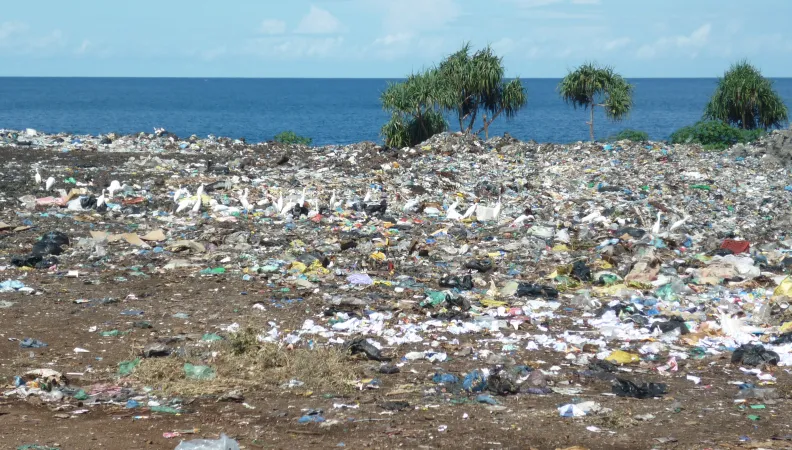Share the page
Rethinking use of plastics and waste management to benefit the environment (PLASTIQUE)
Project


-
Project start date
-
Status
In progress
-
Estimated date of project termination
-
-
Project financing date
-
-
Financing duration
-
3 years
-
Type of program
-
FFEM
-
Global financing amount
-
€ 7320000
-
FFEM financing amount
-
€ 2000000
-
Project lead member institution(s)
-
French Ministry of the Ecological Transition
-
Type of financing
-
Partners
-
UNDP
-
Beneficiaries
-
United Nations Development Programme (UNDP)
-
Type of beneficiary
-
International organisation

As a substantial importer of plastics, Costa Rica has to manage a significant amount of waste, part of which ends up in the wild. To limit the impact of this pollution on the environment, the project - supported by the FFEM - aims to bring in novel solutions to promote rational ecological management.
Context
Costa Rica is Central America’s largest importer of plastics. These plastics (or plastic items) are destined for local consumption, processing and export. The Ministry of Environment estimates that 25% of plastic wastes - some 40,000 tonnes annually - ends up in the natural environment. In light of this, the municipal governments have developed management plans, but legal enforcement is patchy.
The goal of the project - supported by the FFEM - is to reduce in real terms both the plastics footprint itself and the impact of plastic waste on the environment. How? Predominantly, by integrating the best available technologies and best environmental practices, together with increasing the responsibility of producers, all within a green circular economy generating new jobs.
Description
The project has 2 components:
- Establishing a reference base for plastic consumption to develop key actions on information access, the evaluation of external factors and regulations at local and national level.
- Developing “commercial models“ for innovative approaches relying on the implementation of two pilot projects:
- the deployment of projects to reduce or substitute plastic use by the “major retailers and distributors”;
- optimising the collection, sorting, processing, recovery and recycling of waste in order to facilitate final processing in the commercial value chain.
Impacts
- Establishment of a national inventory of plastic waste and its management.
- Development of a means of measuring a country’s plastics footprint.
- Evaluation of the external economic, environmental and social factors in the consumption and management of plastics.
- Raising awareness in society and among other stakeholders of the principles of heightened producer responsibility in the management of plastic waste.
- Development of responsibility regulation for plastic waste.
- Directly involving the companies generating the most plastic waste to be part of a virtuous circular economy model.
Exemplary and innovative characteristic
This project, supported by the FFEM, demonstrates its innovative nature by taking the lead on concrete actions to reduce the plastic footprint. Its practical proposals will engage the public & private sectors, civil society and consumers. It also - and primarily - asks those companies responsible for putting 80% of plastic materials onto the market to engage actively in the development of a national communication strategy on the reduction of the plastics footprint. These companies are also providing input to produce a consensual proposition for acceptable technical and legal regulations compatible with their businesses. The goal is also to increase scientific research and improve the technical capability of local industrial sectors by encouraging innovation and increasing the R&D budget for recycling and re-use.
Sustainable Development Goals
ODD12 Responsible consumption and production



